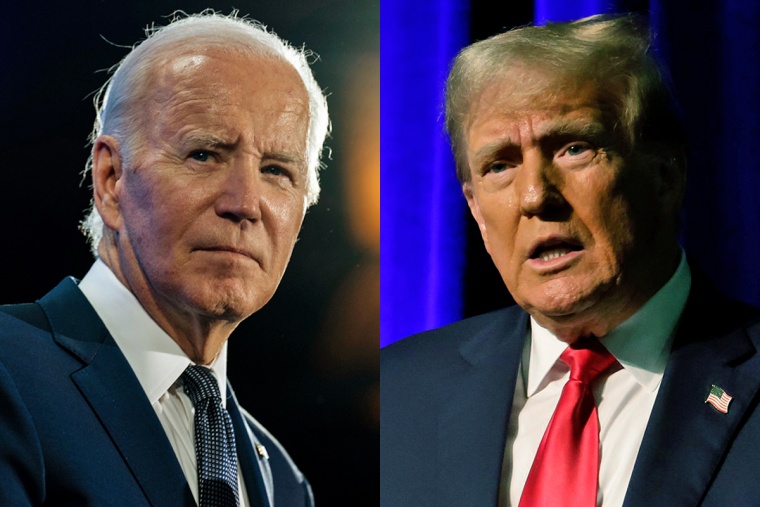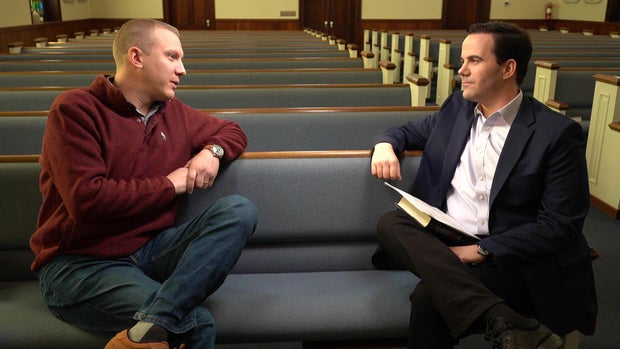
The former president’s doctors have often offered hyperbolic or unverifiable claims in reports about his health.
The former president’s doctors have often offered hyperbolic or unverifiable claims in reports about his health.
Former President Donald J. Trump posted a fawning but vague health report from his doctor on Monday that declares that Mr. Trump’s health is “excellent” and that he has recently lost weight through an “improved diet” and “daily physical activity.”
Mr. Trump’s physician, Dr. Bruce Aronwald, wrote the single-page report over two months after Mr. Trump, 77, underwent a “comprehensive” health examination in September, the document says.
In August, Mr. Trump reported to the Fulton County Jail, during an intake process for one of four criminal cases he is facing, that he weighed 215 pounds. That was nearly 30 pounds less than the White House doctor reported in 2020.
But the report on Monday did not include even basic details such as Mr. Trump’s weight, his blood pressure, his cholesterol levels, any prescriptions or even how much weight he had lost. Dr. Aronwald instead wrote that Mr. Trump’s “physical exams were well within the normal range and his cognitive exams were exceptional.”

The Trump campaign did not immediately respond to questions about specific details regarding Mr. Trump’s health.
The timing of the report appeared to be taking a jab at President Biden on his 81st birthday. While Mr. Trump has repeatedly mocked Mr. Biden’s age, he has had his own verbal stumbles on the campaign trail.
Mr. Trump’s doctors — an eclectic group of personal and White House physicians — have previously released memos and reports that have offered few details about his health and included hyperbolic claims and descriptions of his condition as “excellent.”
Dr. Harold Bornstein, Mr. Trump’s longtime personal physician, declared in late 2015 that Mr. Trump would be “the healthiest individual ever elected to the presidency.” He then later told The New York Times that Mr. Trump was taking medication for various ailments, including a prostate-related drug to promote hair growth. Dr. Bornstein later said that Mr. Trump sent his bodyguard among others to seize his medical records from Dr. Bornstein’s office after the physician fell from Mr. Trump’s orbit.

Dr. Ronny L. Jackson, a White House physician for Mr. Trump, asserted in 2018 that with a better diet, Mr. Trump could have lived to be 200 years old. Another White House physician, Dr. Sean P. Conley, repeatedly misled the public about the severity of Mr. Trump’s illness after he contracted Covid in 2020.
Mr. Biden, as president, has undergone annual physical exams and releases significantly more detailed health reports. His latest report, in February, was five pages long, noting specific ailments, like arthritis, and the regimen of tests taken — to detect neurological disorders, for example.
But tests and reports have done little to reassure voters that Mr. Biden has not slowed in his senior years, and any slip of the tongue or stumble on a stairway draws further public attention. During remarks at the White House on Monday, he confused Taylor Swift with Britney Spears.

Concerns about age and health have been a sore subject for both Mr. Biden and Mr. Trump, who would each be well past 80 by the end of a term in 2029. They have repeatedly dismissed such concerns, and each asserts that he is more than capable of serving another four years in the Oval Office.
In one notable episode, Mr. Trump repeatedly bragged in television appearances about acing a cognitive test that looks for signs of conditions like dementia and Alzheimer’s disease, wielding it as proof that he was sharper than Mr. Biden — who at the time was his opponent in the 2020 election.
Mr. Trump was particularly boastful of completing a memory test that involved reciting the words “person, woman, man, camera, TV” in the correct order.
Recent polls have found that roughly two of every three voters say Mr. Biden is too old to serve another four-year term. About half say the same about Mr. Trump.
Politics and the pulpit: How white evangelicals’ support of Trump is creating schisms in the Church
Goodwill Church, in New York’s leafy Hudson Valley, is a special destination for The Atlantic’s Tim Alberta. This was where his family’s faith journey began. “There’s something so deeply familiar about this place, it’s hard to describe,” he said. “My parents always described this church as holy ground for our family.”
Tim’s father, Richard Alberta, was once a pastor on this pulpit, after becoming a born-again Christian here nearly 50 years ago. “I don’t know where he sat,” said Alberta. “I don’t know what the sermon was that day. But something happened: A guy who’d been an atheist for years, you know, decided that he was gonna give his life to Jesus.”

The Alberta family later moved to Michigan, where Tim’s father led Cornerstone Evangelical Presbyterian Church. “My life was completely wrapped up in the church,” said Tim. “It was the sun around which we as a family revolved. It was our whole world.”
But Tim Alberta sought a career in journalism, writing about politics. His father urged him to stay grounded, including in a 2019 chat he’ll never forget: “He keeps saying to me, ‘Don’t spend your whole career around these people. There are so many other stories.’ And that was one of the last conversations we had.”
Days later, Tim’s dad suddenly died.
He recalled, “When I come home to my church, I’m expecting, I guess, something different from what I got.”
While some offered consolation, Alberta also got confrontation from some conservative church members objecting to his reporting on then-President Donald Trump. “A lot of folks right there at the viewing just wanted to argue about politics,” he said. “They wanted to know if I was still a Christian. And my dad’s in a box, like, 100 feet away.”
Costa asked, “The church wasn’t a sanctuary from politics; politics was now part of the church?”
“That’s right. I knew that, to some degree. And in fact, I willfully ignored it.”
Alberta’s reckoning with faith and politics is the basis for his new book “The Kingdom, the Power, and the Glory,” which documents what he calls an “age of extremism” for evangelicals. “There was a real crisis in the American church, specifically a crisis in the white evangelical church,” he said.
According to Pew Research Center, about a quarter of American adults (24%) identify as evangelical. And as the Republican presidential race heats up, 68 percent of white evangelicals are supportive of Trump. Alberta says that reflects a shift away from norms – in the GOP and in the church.
“We should think about the American church almost in parallel to American politics,” he said. “When it gains enough influence, when it gains enough power, the fringe can overtake the mainstream. And that’s what we’ve seen happen in the church.”

The convulsions in today’s churches come after decades of evangelicals gaining influence, from Billy Graham’s stadium crusades, to the stadium rallies of Donald Trump. In recent years, evangelicals have had heated debates, over the response to COVID and to Trump, all while many key Republicans (like House Speaker Mike Johnson) count themselves as one of them.
At Goodwill Church, Senior Pastor John Torres (who used to work with Tim’s dad) is uneasy about the shadow of politics over his church and others.
Costa asked Torres, “What do people say about politics?”
“That it’s bad. That it’s dirty.”
“What do they say to you about politics?”
“Don’t get involved,” Torres replied. “I don’t want somebody who’s sitting there, listening to me preach, whatever their views are, I want them to stay put. I wanna talk to them about Jesus. I don’t want to talk to ’em about politics. ‘Cause I don’t really know what I can offer them in terms of politics.”
Other evangelicals don’t mind politics – and see this moment as an affirmation of hard-won power.
Costa asked, “What do you say to evangelical leaders who might hear your argument and say, ‘You missed the point: Trump wins for evangelical Christians, he wins for Conservative America’?”
“Wins what?”
“Supreme Court seats, a seat at the table at the White House?”
Alberta responded, “Show me where in scripture any of that matters.”
But it does matter to many of those standing with Trump as he once again seeks the White House. Alberta said, “You have millions of evangelical Christians who voted for Donald Trump and just sort of gleefully embraced his terrible rhetoric and his un-Christlike conduct.”
“Why did they ‘gleefully’ embrace it, to use your term?” asked Costa.
“Power,” Alberta replied. “Trump campaigned for president in 2016 promising that if he was elected, Christians would have power. He gave it to them. He gave it to them in ways that, arguably, no American president has in modern history. And when you have power, you can very quickly lose sight of your principles, your values and your beliefs.”
Alberta says that, regardless, today his faith has never been better. His faith in reporting is also strong, and he says that is his own calling.
“You and I, we’re reporters,” said Alberta. “We’re not supposed to be the story. I never wanted to be the story. [But] once you see this, you can’t look away.”
Why are evangelicals sticking with Trump despite Stormy Daniels allegations?
President Trump won 80 percent of the white evangelical vote in the 2016 presidential election — and while that support has waned slightly, many still back his agenda. And it’s those same voters who are now reading headlines about a scandal involving at least four evangelical leaders in what may be their own #MeToo moment.
At least 70 percent of white evangelicals approve of Mr. Trump’s job performance while 26 percent disapprove, according to CBS News polling held March 8-11, 2018. This was taken shortly before the adult-film star Stormy Daniels’ interview on “60 Minutes” where she described an alleged sexual encounter with Mr. Trump in 2006.
Even after that bombshell report, Republican strategist and CBSN political contributor Leslie Sanchez told CBSN’s Tanya Rivero that evangelicals aren’t up in arms.
“If it was something that happened in the White House while Mr. Trump was president, it would have changed the dynamic completely,” Sanchez said. “But because these things happened prior to him becoming a born-again Christian or really coming to faith asking for grace, a lot of people feel that it’s a different conversation. And they dealt with it before voting for him as president of the United States.”
Sanchez says many look to grace, acceptance, forgiveness and that everyone is flawed.
At least four evangelical leaders have been accused of improprieties ranging from adultery to sexual abuse, according to a recent report in The Washington Post. Sanchez said evangelical Christians are OK with being exposed to the gritty details all in the name of healing.
“It may feel, especially in the Christian community, that it’s a positive thing,” Sanchez said. “This kind of sexual innuendo, abuse — where there is these type of victims — should be exposed so that they can heal and get to the next level.”
“Some would argue, from a conservative perspective, the shoes have not dropped,” Sanchez added. “Some of the victims, some of the women on the conservative side feel that their voices are not given that legitimate platform that they should.”
One way Trump is fighting history: Election losers usually lose the rematch, too

President Joe Biden and former President Donald Trump. Pool via AP; Getty Images
Former President Donald Trump is seeking a rematch against President Joe Biden in 2024, which would be only the sixth presidential rematch ever and the first since the 1950s.
But the track record of rematches at the statewide level during that time paints a clear picture of the hurdles candidates face when they make comeback attempts. In 25 Senate rematches since 1950, just two ended in different results the second time, according to an analysis from the University of Virginia Center for Politics. And of 44 gubernatorial rematch elections since 1950, just 14 (31%) had different results the second time around, according to an NBC News analysis.
Altogether, that’s 16 victories in 69 rematch tries for the candidates who lost the previous elections. In recent years, they have included some of the most important races and notable candidates in those election years, from the Georgia governor’s race last year to one of the key races that kept the Senate in GOP hands in 2016. And some of the same factors that shaped those races will affect 2024’s, too.
When Sen. Ron Johnson, R-Wis., launched his first Senate campaign in May 2010, he faced an uphill climb. A political newcomer, he had just six months to sway voters against then-Sen. Russ Feingold, a Democratic heavyweight seeking a fourth term.
Six years later, Johnson was in a more comfortable position, seeking his second term — though never too comfortable in battleground Wisconsin. When Feingold launched a comeback bid, Johnson wasn’t fazed by the thought of a rematch.
“I didn’t even really think too much of the rematch,” Johnson told NBC News, adding: “I worked tirelessly. I traveled all over the state.”
“I was not particularly optimistic, even just going into our election [night] event. … Surprisingly, the race was called very early, and I won by a pretty comfortable margin,” he said.
Though each election — whether local, statewide or national — is different, the result of Johnson’s rematch election tracks with data that shows that the winner of a first election on the Senate, gubernatorial or presidential level is overwhelmingly likely to win a subsequent rematch, according to an NBC News analysis.
David Karol, a professor of government and politics at the University of Maryland, identifies several trends in down-ballot rematch elections that could be factors in a potential rematch between Trump and Biden.
Of course, the winner of the first election before a rematch often comes from the dominant party in a state or a district.
On the national level, there’s no dominant party — Democrats control the Senate and the White House, but Republicans are in charge of the House, and control of all three has flip-flopped over the years.
But at the state level, there’s evidence that that is still true.
The 2022 midterms featured two gubernatorial rematches — one in Connecticut between DemocraticGov. Ned Lamont and RepublicanBob Stefanowski and the other in Georgia between Republican Gov. Brian Kemp and Democrat Stacey Abrams.
Democrats have won Connecticut in every presidential election since 1992, and they’ve held control of both chambers in the Legislature since 2011.
Lamont defeated Stefanowski last year by 13 points, a major increase over his 3-point victory in 2018.
In Georgia, Democrats have made inroads at the federal level, but Republicans are still dominant at the state level.
Kemp beat Abrams by more than 7 points last year, well more than his approximately 2-point victory in 2018.
Both Lamont and Kemp also had the power of incumbency, the second key factor Karol pointed to in rematch victories.
“The winner on the first round, by definition, is the incumbent in the rematch. It’s not constant over time and doesn’t create invincibility, but it’s a factor that’s helpful,” he said.
And, as it was for Lamont and Kemp, incumbency can be a factor in winning by bigger margins.
“On average, the incumbent wins by more than they did the first time if they win again,” Karol said.
Don’t count the loser out
The major caveat for next year’s potential rematch, though, is that it’s not just an incumbent versus a presidential hopeful; it’s an incumbent versus a former president.
That may lessen any power Biden has over Trump, who has some of the same characteristics that would help Biden, the incumbent — name ID across the country, experience as president and a record on a broad canvas of issues.
In fact, in the few examples of rematch elections between two former incumbents, the challenger does have better odds of prevailing.
One example on the presidential level: the election of 1892.
That year, former President Grover Cleveland sought to beat President Benjamin Harrison, who had defeated him four years before.
Cleveland won after he criticized the Harrison administration for its fiscal policy.
Another historical example comes from Arkansas, where Gov. Bill Clinton faced Republican Frank D. White in 1980. Clinton, the incumbent, lost to White after his first term as governor. But two years later, with White as the incumbent, the once and future governor Clinton came back, defeating White and retaking the office, setting in motion a string of victories that led to his ascension to the presidency a decade later.
“In ’80, [Clinton] was an incumbent, so that should have helped him. But for Democrats, it was a very bad year. [Jimmy] Carter lost Arkansas to [Ronald] Reagan, and that was not beneficial to Clinton,” Karol said.
“In 1982, there are different stories … but also the national environment for Republicans was worse,” he added.
Clinton and White faced each other again in 1984, for a second rematch, which Clinton won.
While the expansive history of rematch elections offers examples and counterexamples, it’s important to remember that historical trends don’t predict the future.
Whether next year’s presidential election will even be a rematch is still far from certain, and many other factors could complicate a path to victory for Biden or Trump.
For one, Karol cautioned, this political moment is unlike any other. Biden faces low approval ratings and major voter concerns over his age and cognitive ability. Trump faces multiple indictments, including some litigating his conduct as president and others alleging that he mishandled sensitive national security information.
“Is Trump unique? Yeah, Trump is unique. We’ve never had a situation like this. … It’s a historic first,” Karol said.







.png)



































I really think these photos of this ugly. Stuff stuck on people hands feet face etc. is nothing more than a scam. It looks like someone has glues Ben’s on peoples body parts, This is disgusting. Iwishicould block all this crap.